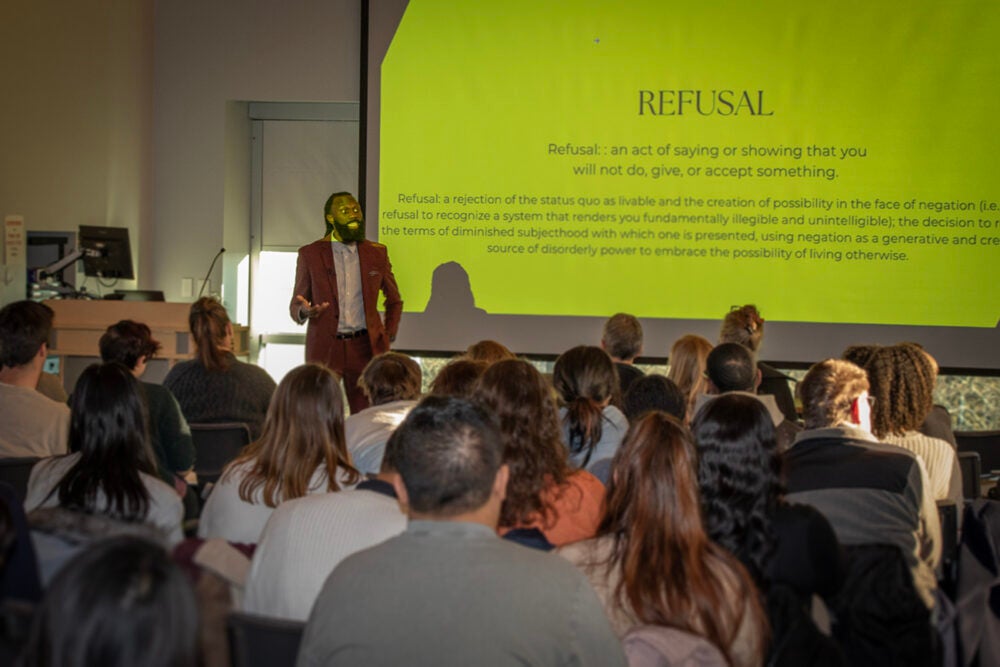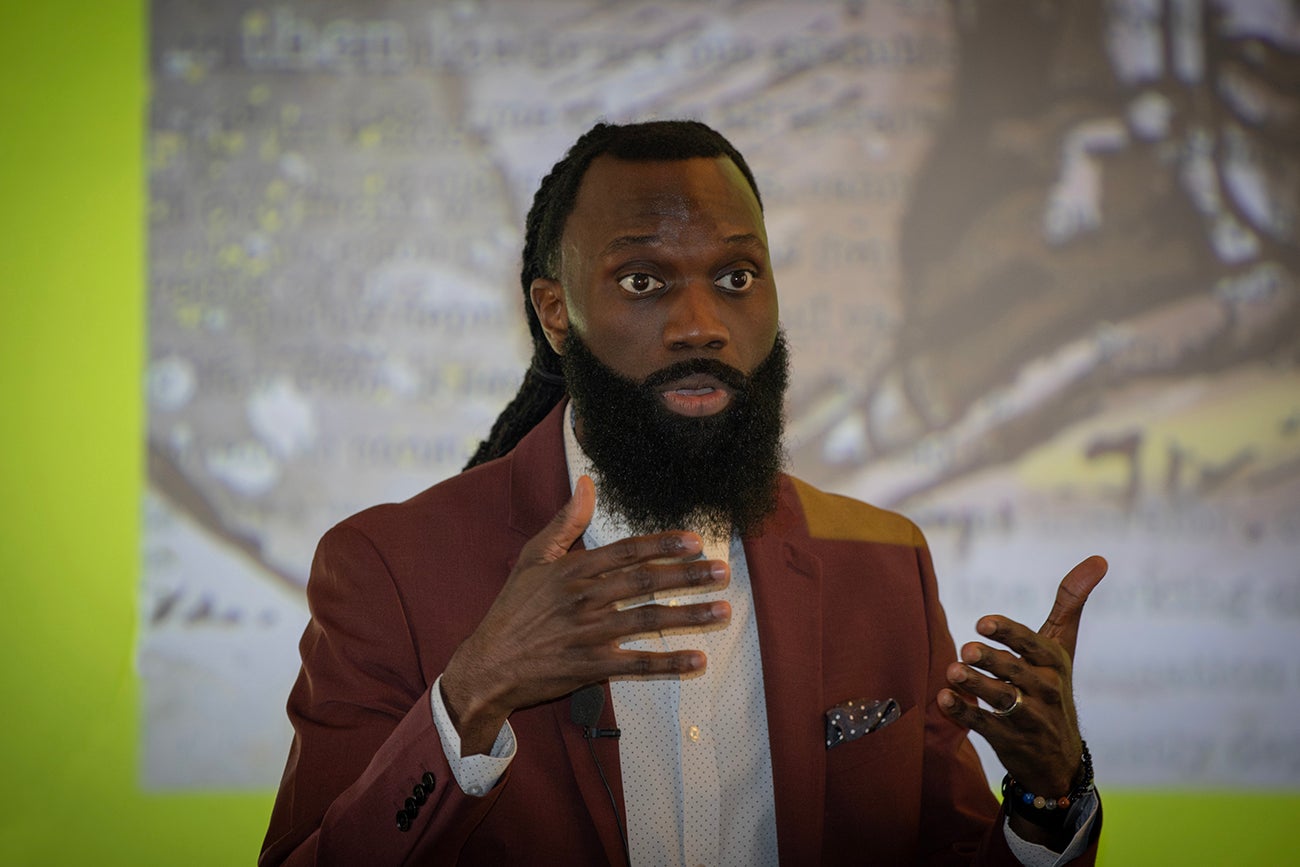“Lift up your eyes to the day breaking before you, give birth again to the dream. Women, children, men, take it into the palms of your hands, mold it into the shape of your most private dream. Sculpt it into the image of your most public self. Lift up your hearts. Each new hour holds chances for new beginnings. Do not be wedded forever to fear or yoked eternally to brutishness. The horizon leans forward, offering us space to place new steps of change here on the pulse of this new day. May you have the courage to look up and out in upon the rock, the river, the tree, your country, here on the pulse of this fine day. May you have the grace to look into your sister’s eyes, to look upon your brother’s face, and say simply, very simply…Good afternoon to you all.” – Wilson Okello
With a masterful blend of exquisite poetry, prolific prose and exuberant passion, Wilson Kwamogi Okello, MS ’12, delivered a powerful talk as part of the College of Education’s Distinguished Speaker Series, providing a fitting end to Black History month, on Feb. 29 in the Galanti Lounge of the Carothers Library.
Okello is an assistant professor of higher education in the Department of Education Policy Studies and director of the Black Study in Education Lab at Pennsylvania State University, and is a graduate of URI’s College Student Personnel master’s program. He went on to earn his doctorate from Miami (OH) University.
“Wilson has always worked toward liberation. Today, he continues to engage in teaching, scholarship and praxis to promote justice and challenge anti-Blackness. His work pushes the boundaries of historically normative and oppressive research in terms of process, content, and product,” said Annemarie Vaccaro, associate dean of the College of Education.
Okello’s discussion, On Intellectual Refusal and the Pursuit of Liberatory Praxis, communicated his commitment to generating language, methods and dispositions to address the systemic conditions facing higher education. He discussed the ethics and responsibility of doing critical research, sustainability for scholars and practitioners, and the politics of doing critical research that push against traditional approaches in education in the service of equity and justice in contentious social and political times.
Okello spoke about Black critical theories in relation to knowledge production. He said this idea came to him when a student asked him how it felt to be Black in this country. His answer … to remind people that they have the capacity to define the world for themselves.
He asked the audience to log onto a site and fill in the answer to the question, what does it mean to be human? There were 89 responses, all words that connected thoughts and emotions to humanness. Now, he said, think about an anagram that takes letters from words to make new words, and those meanings that were once connected shift into new meanings. That is how he described Blackness.
He explored the topic of anti-Blackness, how Black people can become unrecognizable, and cited the example of a Black student told to cut his dreadlocks before going to a job interview.
“What is our responsibility in this unfinished project of emancipation?” Okello asked. “How do we BE in this world.”
As an interdisciplinary scholar, Okello said his work is often a fusion of discrepancies, bringing together what we know, and moreover, how we know and understand.
He emphasized “slowness,” not to be in a rush, dig deeper and more intensely, to spend more time with ideas, to “grapple with what is messy.”
This then segued into “liberatory praxis,” looking beyond traditional forms of learning, as what “might happen” in a university. “Part of our work is to think with the long genealogy of ideas,” he said. “Ideas don’t often fit into rigid boundaries.”
Okello also spoke about the concept of refusal.
“What do we see if Black people don’t have to resist?” he asked. “Do we have no life than to resist white supremacy?”
He expounded on the movement away from white supremacy and recognizing the “brilliance of it” to enlarge the scope of Black life.
“Learn from the creatives,” he said, urging educators to “create dangerously” what will be required in this moment or in an enclosure.
For now, he said, learn to live with tension while working toward liberation. “Ask more critical questions.”
At the conclusion of Okello’s talk, College of Education Dean Danielle Dennis said, “Your words have left me with none.”
The Distinguished Speaker Series is part of the College of Education’s “Year of Education,” a year-long celebration of monthly events that highlight the important work of leaders across the educational spectrum.


